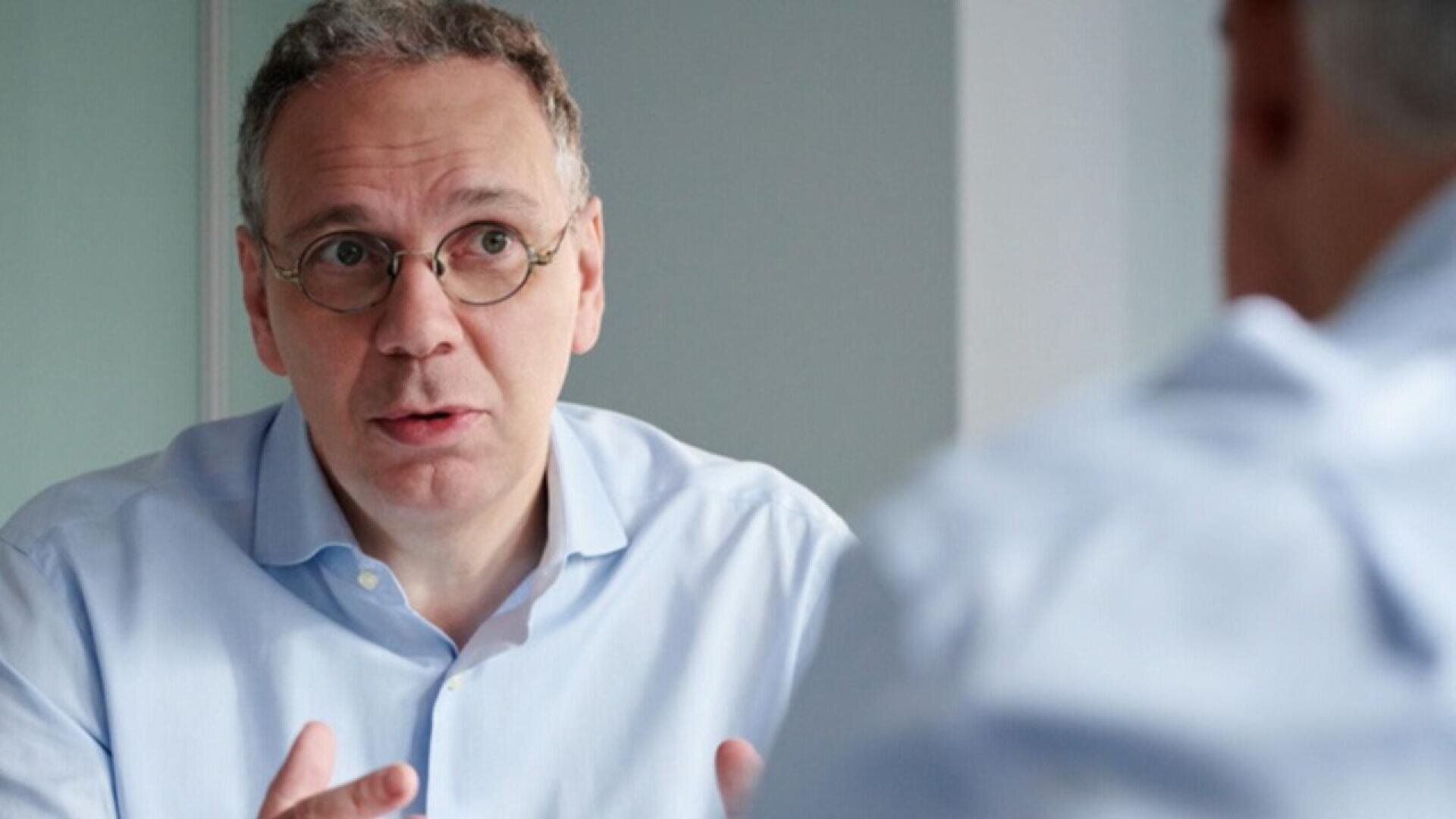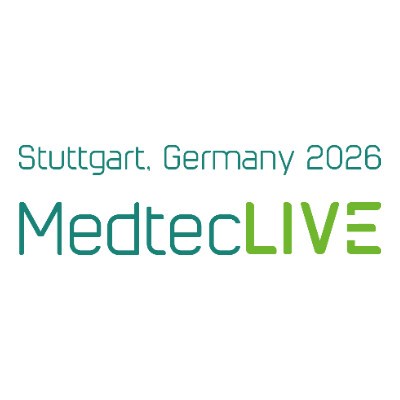Interview on MDR: "Without innovative medical devices we endanger patient safety"
MDR - it only takes three letters to set the pulse of many medical technology entrepreneurs racing. We asked Marc-Pierre Möll, Managing Director of the German Medical Technology Association (BVMed), what the industry thinks about the state of regulation.
Dr Möll, in spring 2023, the EU tried to take the pressure off the MDR by extending the transitional periods for recertification and cancelling sales deadlines. Did this lead to a noticeable improvement of the situation on the part of the companies?
Marc-Pierre Möll: The Amendment Ordinance was important and right, because the MDR is poorly crafted. It is too complicated and bureaucratic. And it puts the brakes on innovation. There is a broad consensus that the MDR causes a shortage of products in medical care.
The consequences can be dramatic. A third of the products are in danger of being taken off the market. Already, many products are no longer available on the market. Studies have shown that in 65 percent of cases, medtech companies are forced to shift development resources to regulatory activities, at the expense of innovation. According to a BCG study, 89 percent of medtech companies now prioritise FDA approval. Companies are increasingly shifting research projects to the UK or the US because innovation access and data use are better regulated there. And even Switzerland, which has adopted CE marking for decades, is looking towards the USA and also wants to recognise FDA approval for medical devices.
Has the new amendment noticeably improved the situation? Unfortunately not, because the basic problem has not been solved and the legal framework is still not practical. We have just received current figures from the EU Commission. They show that progress in the transfer from the old directives to the MDR is still too slow. More than six years after the MDR came into force, only just under 4,000 MDR certificates have been issued. That is only 17 per cent of the required certificates. Another 13,000 applications are still in the pipeline.
This shows: The structural problems of implementing the new regulations are overshadowed by bureaucratic hurdles and missing regulations. For example, there is still a lack of fast-track regulations for orphan devices, for niche products, for innovations. We need to act and structurally develop MDR and IVDR.
What became of the EU's announcement to provide more support for small and medium-sized enterprises?
Marc-Pierre Möll: So far, little has come of this. The limit of bureaucratic resilience, especially of small and medium-sized enterprises, our SMEs, has been exceeded. But something is now moving. The EU Commission has launched a public consultation on "streamlining reporting obligations" in mid-October 2023. Measures are to be taken to reduce the administrative burden by up to 25 percent and to relieve SMEs. However, this does not include conformity assessments.
Further measures by the EU Commission to relieve the burden on SMEs are already being discussed. The aim is to strengthen the competitiveness of SMEs and to promote a fair environment throughout the internal market. This is a good direction. In our white paper on the further development of the MDR, we also call for the establishment of an SME office at EU level. The aim of such an SME office is to provide targeted support to small and medium-sized enterprises.
 Dr. Marc-Pierre Möll © BVMed | Darius Ramazani
Dr. Marc-Pierre Möll © BVMed | Darius Ramazani
You complain that MDR is causing bottlenecks in the supply of medical devices. Where is this already visible in concrete terms and where do you think it will hit patients particularly hard in the next few years?
Marc-Pierre Möll: Medical associations and doctors are talking about visible bottlenecks, for example in paediatric cardiology and paediatric heart surgery, in special areas of orthopaedics and in oncology. In many cases, there is a lack of paediatric products, orphan devices and niche products. And there is usually a lack of products that have been on the market for a long time without any incidents, i.e. that are considered safe, but which do not meet the increased requirements of the MDR in the area of clinical data. However, it is often not easy to collect these data because they are established technologies.
In your white paper, which you presented together with the VDGH at the end of August, you called on the European institutions to enter into a dialogue with the industry associations and all relevant players in Germany and Europe in order to take the necessary measures as quickly as possible. Do you have high hopes that this will happen? Or have you already received a response to your appeal?
Marc-Pierre Möll: The structural problems of MDR are known and recognised. In the meantime, the MEPs who were involved in the regulations are also saying this quite clearly. A rethink is discernible among the European institutions. Therefore, we are confident that after the European elections in 2024, the further development of the MDR will be on the European political agenda.
In any case, there are very positive signals from Germany. For example, there was recently an initiative by the states of Bavaria, Baden-Württemberg, Hesse and Rhineland-Palatinate to unite against bottlenecks in the supply of medical devices and medicines and to strengthen Germany as a production location. BVMed was also actively involved in the meeting of the ministries of health and economics of the four southern states in September 2023 in Munich. It is good that politics remains in dialogue with business. We now need a joint effort, a coordinated medical technology pact, to keep and strengthen production and research in Germany under difficult framework conditions.
We need a unified medtech strategy. We need competitive regulation. We need a bureaucratisation offensive that consistently reduces overregulation and fights for location-friendly regulations in Brussels. In order to support our SMEs as drivers of innovation, not to stifle them. We need better access to data and the right to apply to the Research Data Centre for research-based medical device companies. And we need to strengthen the resilience of the German healthcare system and supply chains. This includes better involvement of the medtech industry in the development of solutions, because resilience requires close cooperation between politics and industry.
One of the declared aims of the MDR is to protect patients. Isn't it unlikely that the EU will agree to facilitations, for example through fast-track procedures for innovative products, as you are calling for?
Marc-Pierre Möll: On the contrary. Without modern, innovative medical devices, we endanger patient safety. Already today, doctors in Germany do not have the best products at hand, unlike their colleagues in the USA, Japan or Brazil. As a result, the quality of patient care suffers. We are already three or four years behind in the approval of innovative products.
By the way, the proposals for action in our MDR white paper refer to existing regulations in other countries or legal areas. Our proposals are tried and tested systems that are already established. They do not include facilitations that reduce safety or performance. However, they focus on essential aspects of conformity assessment, without unnecessary bureaucracy.
Europe must remain competitive and patients have a right to high quality, safe and high performing medical devices. This must continue to be ensured
Personal details
Dr Marc-Pierre Möll has been Managing Director of the Bundesverband Medizintechnologie e. V. in Berlin and Managing Director of the BVMed Academy since 2019. He is also a member of the BVMed board. The political scientist with a doctorate has many years of experience in health policy. From 2008 to 2019, he was responsible for the "Government and Parliament" division at the Association of Private Health Insurers in Berlin. Before that, he headed the office of two members of parliament in the German Bundestag as a personal assistant for 17 years.


